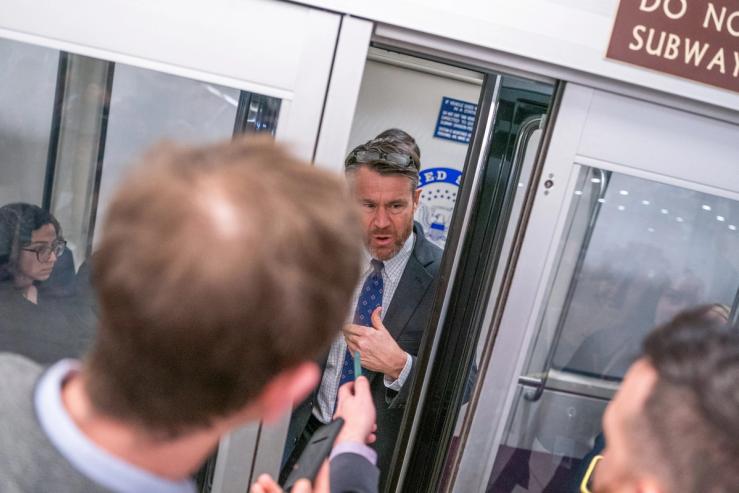the issue
US presidents in both parties have relied on old authorizations for the use of military force to justify new actions.
It happened when Donald Trump, during his first term, used a 2002 congressional authorization to justify a drone strike against Iranian General Qassem Soleimani in 2020. And former President Barack Obama’s administration cited the same law in its campaign against the Islamic State in 2014.
This practice has led some US lawmakers to push for repealing these authorizations, as Congress looks to wrestle back some authority over war powers and foreign policy.
the bond
Proponents of repealing the Gulf and Iraq War authorizations for the use of military force from 1991 and 2002, respectively, may finally have a victory on their hands.
The House and Senate each recently passed their own versions of annual defense policy legislation that include bipartisan repeals of the 1991 and 2002 AUMFs, as they’re known. The Senate’s action was particularly remarkable, given that the measure was added by a voice vote — which usually signals a noncontroversial piece of legislation.
The repeals still need to make it into the final version of the defense policy legislation hashed out both chambers, but the effort clearly has momentum.
Sens. Todd Young, R-Ind., who along with Sen. Tim Kaine, D-Va., has pushed for years to do away with the old war authorizations, blamed congressional leadership for stamping out past repeal efforts. He warned that it’s possible a similar scenario plays out again this time.
“I’d be very disappointed if we had every single member of the United States Senate voting on behalf of their constituents to allow this into the bill, and it was somehow not included in the final legislation,” he told Semafor when asked about his confidence in the repeals becoming law.
“That would suggest to me that either leadership or someone in the administration was being unresponsive to the desires of the American people.”
Young described the Trump administration as “passive” on the issue and “inclined to defer to Congress.” The White House Office of Management and Budget didn’t return a request for comment on the administration’s position on repealing the AUMFs by press time.
The bills gained momentum just as the Trump administration faced bipartisan scrutiny for its military strikes on alleged drug ships off the coast of Venezuela, though it’s unclear whether that dynamic played a role in the latest effort’s success. The repeal of both these authorizations wouldn’t impact the Venezuela campaign.
Know More
While repealing the authorizations would send an important signal, it wouldn’t actually have an immediate impact on existing conflicts, said Gene Healy, senior vice president for policy at the Cato Institute, who supports doing away with them.
He argued that it’s “good to get something that can be used to justify new operations off the books.”
There is an additional 2001 war authorization — passed in the aftermath of the Sept. 11 attacks — that would have more real-world implications, given that it’s been used more expansively to justify deployments and operations against terrorist groups in the Middle East.
“People talk about the forever wars. It’s kind of the forever authorizations,” said Healy, who compared the 2001 authorization to a “blank check.”
Young noted past efforts to replace the 2001 AUMF have failed, though he said it was not off the table in the future.
“That’s a more complicated effort, and I want to emphasize that continuing to target terrorist groups is still authorized under the ’01 AUMF,” Young said.
Notable
- Members of Congress have received little information “about the intelligence and strategy underlying its strikes on alleged drug smuggling boats in the Caribbean,” NBC News reported.



